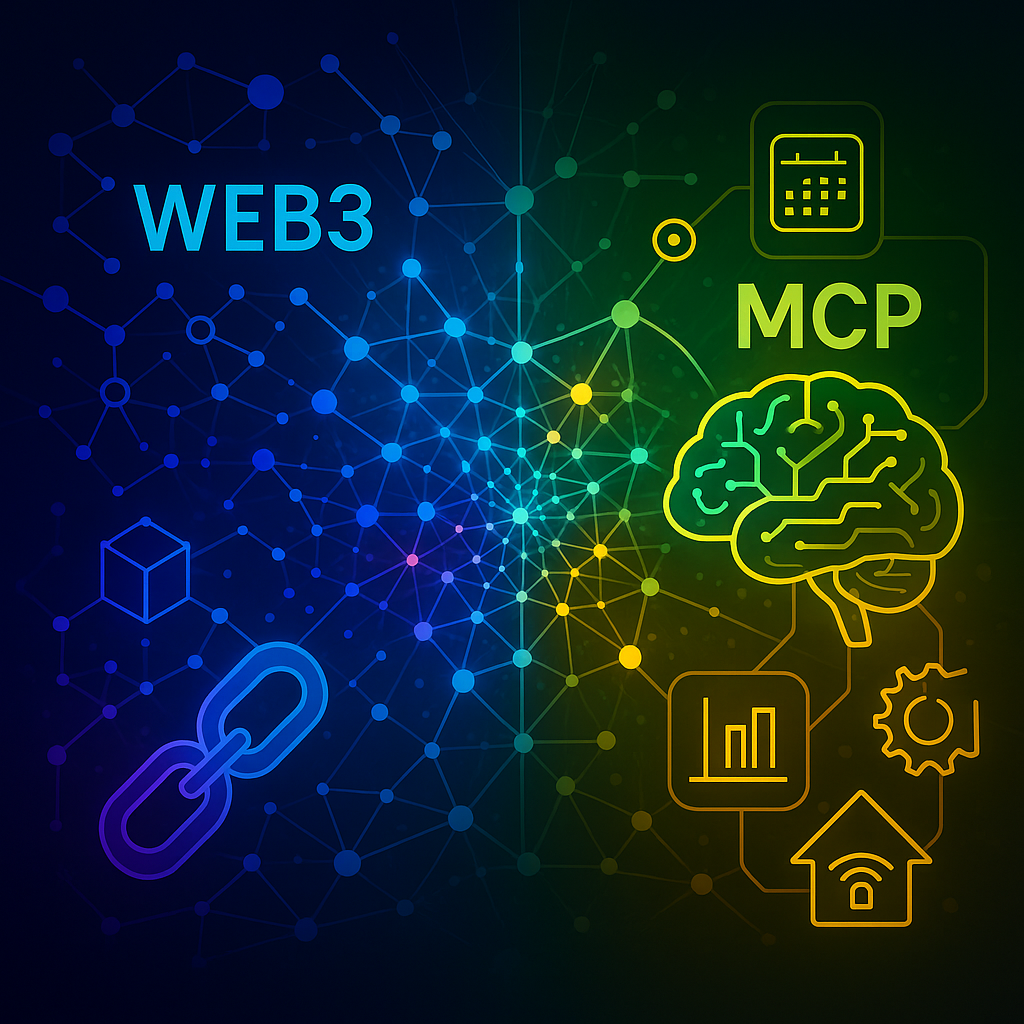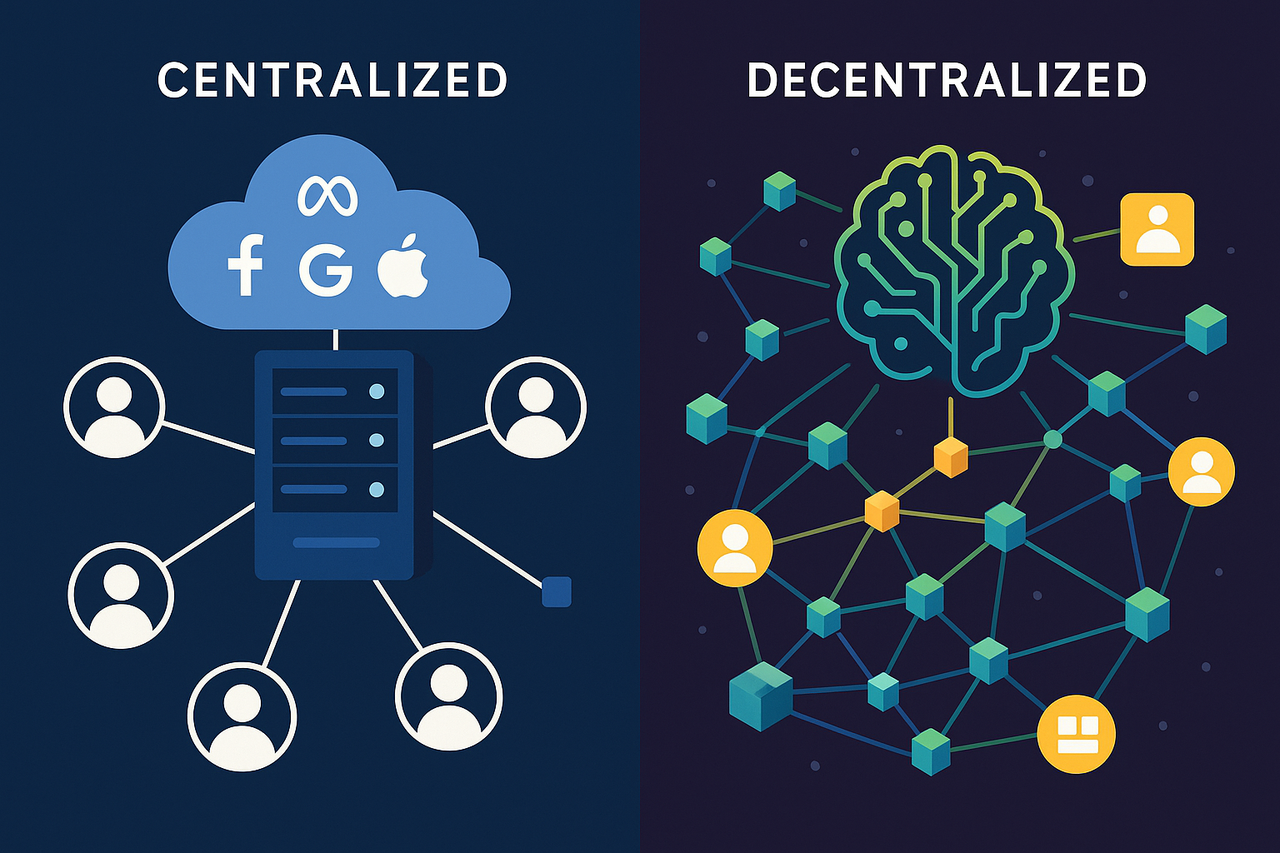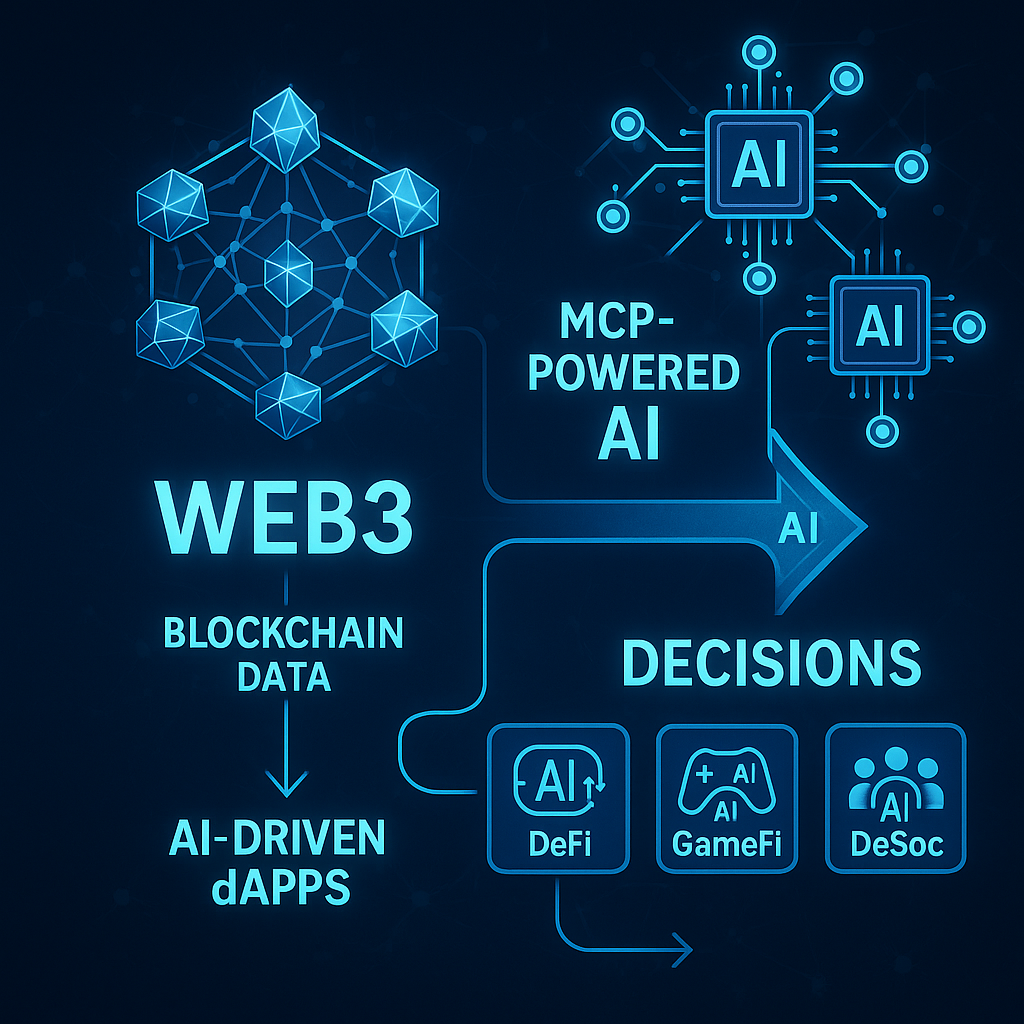In the burgeoning world of cryptocurrencies and blockchain, Web3 has become synonymous with the future of the internet—a more decentralized era where users truly own their data and assets. More recently, another pivotal concept has emerged: the Model Context Protocol (MCP), which is fundamentally transforming how Artificial Intelligence (AI) operates. So, what happens when these two powerful forces—Web3 and MCP—converge? This article will explore exactly that, offering a straightforward guide to how they are collaboratively shaping a smarter and more decentralized digital world.

What is Web3? Simply Explained
Imagine a world where you no longer rely on centralized companies like WeChat or Amazon to manage your social data or shopping history. Instead, all your data is entirely under your control, and every transaction is transparent, public, and immutable. This is the core vision of Web3.
Primarily built on blockchain technology, Web3 introduces several key shifts:
-
User Data Ownership: All content and data you generate online truly belong to you, not to a specific platform. This decentralized ownership model is central to Web3.
-
Decentralization: No single central entity can completely control the network, which means less censorship and greater resilience. The philosophy of Web3 is inherently decentralized.
-
Crypto-Economic Incentives: Users who contribute to the network can earn rewards through cryptocurrencies, forming a self-sustaining economic system. This is a crucial driver for the thriving Web3 ecosystem.
Through Web3, we've witnessed the emergence of innovative applications like Decentralized Finance (DeFi), offering banking services without traditional banks; Play-to-Earn (GameFi) games, where players truly own in-game assets; and Decentralized Social (DeSoc) platforms, aiming to return social control to users. All these exemplify Web3's significant role in building a decentralized future.

What is MCP? AI's Intelligent "Bridge"
Now let's turn our attention to the Model Context Protocol (MCP). You can think of it as a universal interface and powerful toolkit designed for Artificial Intelligence, especially large language models (like GPT, Claude, etc.).
Historically, AI models might only answer questions based on their pre-trained data. But with MCP, AI becomes unprecedentedly powerful and practical:
-
Real-time Information Access: MCP empowers AI models to connect to external data sources in real-time, much like we use a web browser. Whether it's the latest cryptocurrency prices, stock market trends, weather forecasts, or complex academic papers, AI can access and integrate this information via MCP in real-time, ensuring its outputs are timely and accurate.
-
Execution of External Tasks: MCP doesn't just enable AI to answer questions; it also gives it the ability to execute real-world tasks by calling external tools and applications. For instance, AI can use MCP to automatically add an event to your calendar, query and compare product information from e-commerce platforms, or even control smart home devices. This transforms AI from a passive "knowledge base" into an active "intelligent agent."
-
Standardized Interaction: MCP establishes a unified protocol, meaning that any AI model, by adhering to MCP, can "converse" with various external data and tools in a standardized way. This significantly simplifies the development process for AI applications and accelerates their adoption.
In short, MCP breaks down AI models' "information silos," allowing them to interact efficiently and intelligently with real-world data and applications. It is a key technology driving AI development and application.
The Synergies of Web3 and MCP: Building a Smart and Trustworthy Decentralized World
When the decentralized nature of Web3 converges with MCP's intelligent connectivity, they unlock unprecedented synergies, painting a picture for users of a smarter, more autonomous, and secure digital future. This combination is not just a technological breakthrough; it's a crucial step in building a decentralized future.
-
AI Access to Trustworthy On-Chain Data
-
Web3's Advantage: Blockchain technology ensures the transparency, immutability, and traceability of on-chain data. This data is fundamental for building a foundation of trust.
-
MCP's Advantage: MCP provides a standardized and efficient way for AI models to easily and securely access this high-quality on-chain data.
-
Combined Advantage: Imagine an intelligent AI investment assistant. It could use MCP to directly fetch verified on-chain data from Web3 applications (like DeFi protocols), such as real-time lending rates, liquidity pool depths, and trading volumes. Based on this trustworthy data, the AI could provide more precise and less risky investment advice, greatly reducing the risks of data fabrication or manipulation often associated with centralized data sources. This Web3 and MCP synergy makes AI's decision-making foundation far more reliable.
-
AI-Powered Decentralized Applications (dApps)
-
Web3's Advantage: Provides decentralized infrastructure and smart contracts that can automatically execute pre-defined protocols without intermediaries.
-
MCP's Advantage: Empowers AI models to become more capable "intelligent agents," able to understand complex instructions and execute tasks.
-
Combined Advantage: Within the Web3 ecosystem, we can expect to see dApps deeply driven by AI. For instance, a Web3-based smart contract could use MCP to instruct an AI agent to automatically adjust a user's digital asset allocation strategy based on real-time on-chain market fluctuations. Or, in a decentralized socialapplication, an AI assistant could use MCP to access your authorized on-chain identity and preferences, providing highly personalized yet privacy-preserving content recommendations. AI is no longer exclusive to centralized platforms but integrated into Web3's decentralized protocols, offering users smarter and more autonomous services. This is a significant direction for Web3's development.
-
Trust-Minimized AI Collaboration Networks
-
Web3's Advantage: Through token economic incentives and cryptographic proofs, trust-minimized collaborative networks can be built, fostering transparent cooperation among all parties.
-
MCP's Advantage: Standardizes communication and collaboration between different AI agents and between AI and external services.
-
Combined Advantage: In the future, it's highly probable that Web3-powered MCP networks will emerge. In such networks, different AI agents and data service providers could collaborate efficiently through Web3's incentive mechanisms and decentralized infrastructure. For example, if an AI agent needs to perform complex on-chain data analysis or machine learning computations, it could delegate the task to other specialized AI service providers within the network, paying them in Web3 cryptocurrency, while leveraging blockchain's immutability to verify the authenticity and fairness of the computation results. This will foster a vast, efficient, and entirely decentralized"collaborative economy" composed of AI agents, further advancing Web3's growth.

Looking Ahead: A Smarter, Freer Digital World
The deep integration of Web3 and MCP is sketching a new paradigm for the digital world. In this future, AI is no longer an inaccessible black box but an intelligent tool capable of understanding and serving users, with its operations underpinned by the open, transparent, and user-controlled architecture of Web3.
For the average user, this translates to:
-
Smarter Service Experiences: AI will be able to meet your needs more precisely and personally, as it can access richer, more authentic decentralized data.
-
Enhanced Security and Privacy: Your data and digital assets will be more secure because they are no longer centrally stored by a few large corporations, and AI operations can be verified via on-chain records. Web3's security is fully demonstrated here.
-
More Participation and Earning Opportunities: With the rise of decentralized AI networks, you might even be able to contribute your data or computing resources, participate in AI development, and earn cryptocurrencyrewards, truly becoming a participant and beneficiary of the Web3 ecosystem.
Naturally, this is a dynamic and rapidly evolving field, brimming with both challenges and opportunities. Yet, there's no doubt that the combination of Web3 and MCP will be a pivotal force driving the internet toward a smarter, freer, and more decentralized future.












